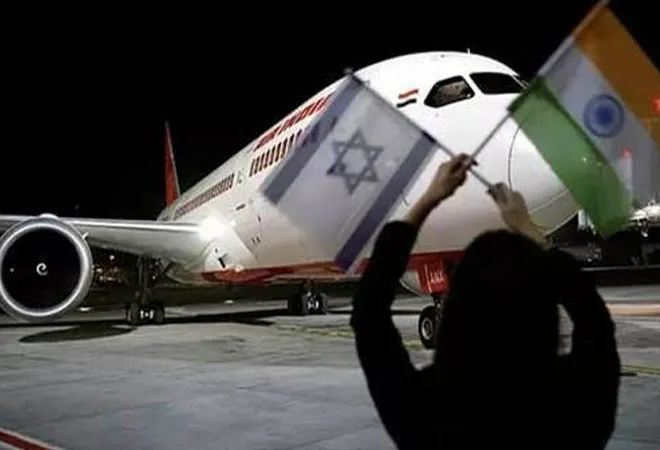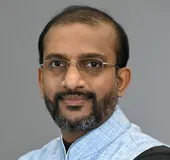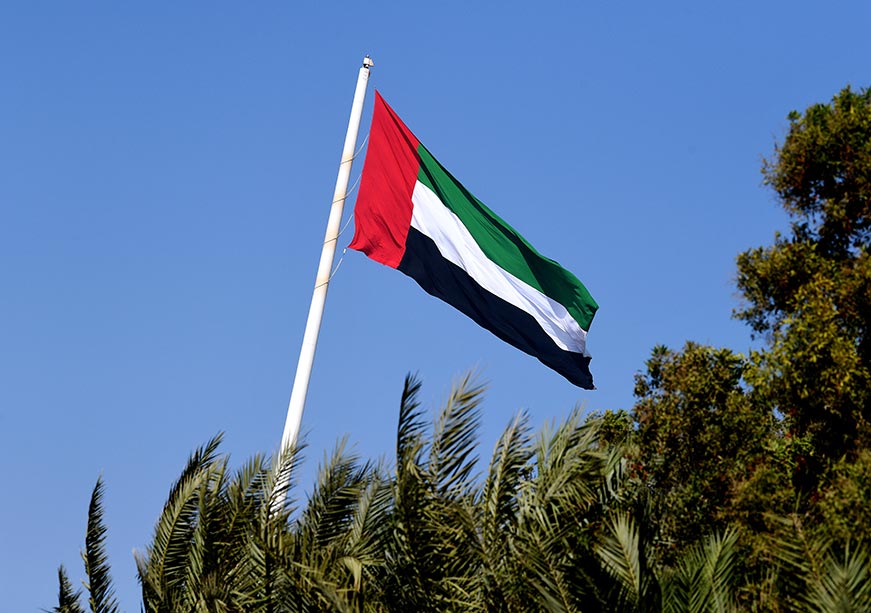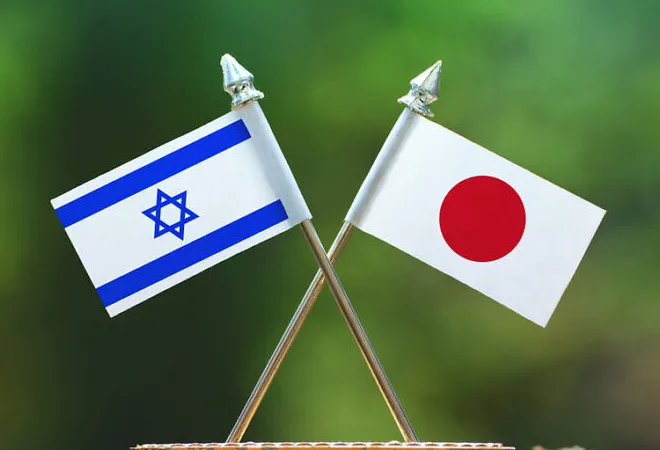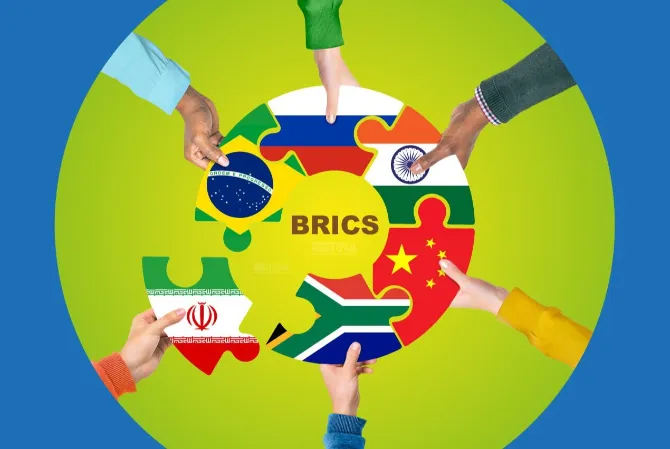In the face of growing regional uncertainty and global instability, India and Israel, with other partners, must explore and develop robust cooperation in various domains
Though the relationship between India and Israel has, on occasions, been referred to as a “marriage made in heaven,” they have traversed from being estranged partners due to political-ideological reasons to becoming strategically inseparable partners in recent times due to a combination of economic, political, ideological, and security factors. This holds promise because, at the macro level, both countries are strategic players in their own right in a rapidly deglobalising landscape. At the micro level, they are part of the evolving Asian and West Asian regions, which are in the throes of tectonic changes. A combination of economic consequences of the Russia-Ukraine conflict and a series of reconciliation moves among traditional rivals in the region has revived interest in energy-rich West Asia. In the economic domain, the International Monetary Fund’s World Economic Outlook forecasts a 3.2-percent GDP growth for 2023 and 3.7 percent for 2024 for the West Asia and North Africa region. Emerging and developing Asia is tipped to grow to 5.3 percent and 5.2 percent, respectively. This, in comparison to the advanced economies that are pegged at 1.2 percent and 1.4 percent, is miles ahead.
The world’s eyes are glued on India not just because of what it is at present, but for the potential it bears for the future.
Situating the two Is (India and Israel) in this context—6.1 percent and 6.8 percent; and 3 percent and 3.1 percent, respectively—creates the potential for bountiful synergies, especially since the volume of India-Israel trade has remained below potential. The world’s eyes are glued on India not just because of what it is at present, but for the potential it bears for the future. In this context, an important way to boost bilateral trade is by moving swiftly on the India-Israel Free Trade Agreement talks. The India- United Arab Emirates (UAE) Comprehensive Economic Partnership Agreement, which includes the services sector and was signed in less than 90 days after negotiations began, could serve as a useful template. The United States (US)-China rivalry and its evolving manifestation in West Asia and the Indo-Pacific region has highlighted India’s role, which could potentially tip the balance between the two superpowers. In recent years, India has become more active in the region, increasing its regional influence and strengthening its cooperation with the US in various forms. This includes the I2U2 minilateral grouping with Israel and UAE. Designated by some as the ‘partnership of the future,’ I2U2 aims to energise economic cooperation among its members in various domains, such as food security, technology, new energy, infrastructure, health, space, and innovation, to further regional stability.
Out-of-the-box approach
While improvements in India-Israel bilateral relations are incremental, a touch of dynamism could be added by adopting a regional and minilateral approach to the relationship. Taking an out-of-the-box approach and building on the India-UAE and Israel-UAE economic partnership agreements, an India-Israel-UAE trilateral trade agreement could be signed. Such steps could free existing bottlenecks caused by overburdening regulations, substantially expanding the trade volumes between and among the three countries. A combination of UAE capital, Israeli technology and the Indian market in various sectors could yield win-win-win results. It is in this spirit that the International Federation of Indo-Israel Chambers of Commerce initiated a partnership in 2021 wherein an Israeli company – Eccopia – produced innovative water-free robotic solar cleaning technology in India for a project in the UAE. Confident in replicating such partnerships in other sectors, the three countries estimate the innovation and international business potential of their cooperation at US$110 billion by 2030.
The UAE hosted the ‘UAE and Israel Uniting with Africa’ event in 2020, which India could easily join in a trilateral format given its trusted and influential role in Africa.
Another example of such a trilateral partnership is an India-Israel-UAE joint venture MoU signed in 2022. This facilitates Israel’s Tower Semiconductor and UAE’s Next Orbit Ventures to invest US$3 billion to establish India’s first semiconductor manufacturing facility in the state of Karnataka. Further, the UAE hosted the ‘UAE and Israel Uniting with Africa’ event in 2020, which India could easily join in a trilateral format given its trusted and influential role in Africa. One more innovative minilateral cooperative mechanism worth exploring is the possibility of expanding the I2U2 to include other like-minded partners, such as Japan, South Korea, and Singapore, among others. Efforts are already underway at the Track 2 levels to tap this space. The fact that Japan and South Korea have broken new diplomatic ground a few weeks ago makes such collaboration possible, thus helping the India-Israel cause. Among a few promising ideas that could drive such new minilateral arrangements is the establishment of an India-Israel-led ‘Blue Economy Fund’, which could include other partners. Blue economy is an emerging concept for ocean governance that harnesses the economic potential of oceans in environmentally sustainable ways. It could positively impact global issues like carbon neutrality, green energy, and energy security, using AI solutions, all issues that gel well with India’s SAGAR (Security and Growth for All in the Region) that was first proposed in 2015. Such collaboration brings to the fore the role of middle powers in a fragmented world. In the current scenario, countries like India and Israel are more focused on promoting five economy-oriented Cs – capital, connectivity, commerce, collaboration, and climate – rather than just harping on politics and security issues.
Innovation and technology
As superpower rivalries continue to escalate in the pursuit of advanced technologies, India and Israel have much to gain from increased cooperation in this domain. Both nations are leaders in technology and innovation, and the potential for collaboration in the high-tech sector is substantial.
India’s expertise and its large and growing economy complement Israel’s R&D and innovation capabilities, providing an excellent opportunity for joint advancement in R&D and innovation.
India has already launched its indigenous 5G technology, while a test bed for 6G was launched in March 2023. Working together across areas ranging from artificial intelligence, big data and semiconductors to renewable energies, healthcare, and agriculture could substantially benefit both countries, placing them at the forefront of these fields. India’s expertise and its large and growing economy complement Israel’s R&D and innovation capabilities, providing an excellent opportunity for joint advancement in R&D and innovation. Such collaboration could create additional opportunities for the two countries to extend their partnership to other countries in the region, with a particular focus on water management, counterterrorism, and emerging technologies. Expanding engagement between the two countries’ tech start-up ecosystems should also be a priority. India has seen the establishment of 46 unicorns in 2021 alone, with over US$42 billion raised by its startups. Similarly, Israel has seen the rise of 33 unicorns with US$25 billion flowing in to support them. By joining forces, both start-up ecosystems can make significant gains. Adding the UAE to the mix could create a plethora of opportunities. In an age of hi-tech concentration, it is crucial to remember that there is great value in low-tech innovation. India and Israel could collaborate in this sphere to provide solutions to many problems in the Global South, which is India’s focus during its G20 presidency. India’s cheap digital payment system, for example, could be replicated and scaled up rather easily in other developing countries.
India and Israel could collaborate in this sphere to provide solutions to many problems in the Global South, which is India’s focus during its G20 presidency.
India’s Adani Group’s acquisition of Haifa port in 2022 has paved the way for increased cooperation between the two countries on both regional and local infrastructure projects, in addition to I2U2’s integrated food parks and renewable energy projects worth US$2.3-billion in India. Another infrastructure project that has attracted India and Israel is the ‘India-Arabian-Mediterranean Corridor’ to Europe, which links ports in India, UAE, Saudi Arabia, Jordan, Israel, and Greece. Such projects could provide further opportunities for exploring new synergies both bilaterally and beyond.
Strategic Value Addition
Politically, while many ascribe domestic-ideological reasons for the recent growth in India-Israel relations, the relationship has now reached a state of maturity in which foreign policy continuity, irrespective of the political orientation of the governments in power, is one of the mainstays of both countries. This is evident on several fronts. One, successive Indian governments from different political mainstreams have forged ahead with their Israel policy and one of the chief foreign policy successes of the current government, ironically, is in West Asia. Two, the same is evident in Israel’s India policy which enjoys wide bipartisan support. Another indication of this formulation is that Israel’s Abraham Accords with Arab neighbours has so far won the active support of at least four governments. While the recent resumption of Saudi-Iran diplomatic ties will test Israel’s foreign policy further, it is interesting that India-Israel ties have remained dehypenated from both the Palestinian and Iran issues. This is testimony to the respect each of them has for the other’s strategic autonomy, which combines well with their pragmatic foreign policies. Looking ahead, defence and security ties will remain important in the face of growing regional uncertainty and global instability. In a rapidly changing global landscape, which is evident in the superpowers’ actions and perceptions in West Asia, building trust and long-lasting relationships is essential. India and Israel, with other partners, must explore and develop robust cooperation in multiple areas not only to help shape the developments in West Asia but also to facilitate shaping the future of an increasingly reglobalising, multipolar and multi-networked world.
